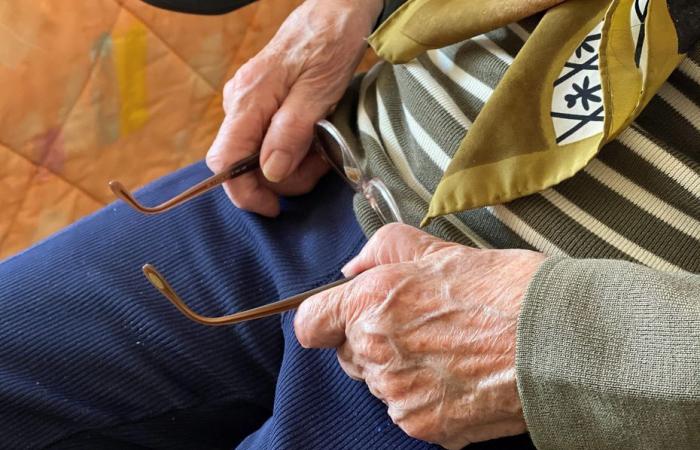A resident of Doubs, Louis accompanied his mother, who suffered from Alzheimer’s, from her diagnosis until her death. On the occasion of the day of prevention against this disease, this September 21, 2024, he looks back on the difficulties and the beauty of the role of family caregiver.
Company
From daily life to major issues, discover the subjects that shape local society, such as justice, education, health and family.
France Télévisions uses your email address to send you the “Society” newsletter. You can unsubscribe at any time via the link at the bottom of this newsletter. Our privacy policy
It took him time, and to get his old life back, to fully understand the role of caregiver. For eight years, Louis accompanied his mother in her fight against Alzheimer’s, a disease that affects one in four people over the age of 80.
Three years after his death, he says that as a family caregiver, “we become it gradually without realizing it”. It starts with “the administrative”Then “the races”. And it often ends, as was the case for her, with daily home visits before placement in a nursing home.
While he did not necessarily feel his availability to others declining at the time, he is now aware of having had “two lives” during this period, his own and that of caregiver. The second having gradually nibbled away at the first.
Your goal remains the same: to maintain the person’s autonomy. But your burden is only getting heavier.
Louis, former family caregiver of a person with Alzheimer’s
The hardest thing for him, on reflection, was “maybe” to see the person gradually lose themselves, to make a “white mourning” : that of a loved one who is still alive. And to accept that “The more you do it, the worse it will be” however.
He was told about associations, support groups and even financial help. But in the heat of the moment, “We are not always able to find time to go there”.
He therefore believes that psychological support for caregivers should be imposed. That when the diagnosis is announced, health professionals should not only warn the patient, but also their loved ones of what they would all be going through together.
His advice, if he had to give any, would be to know “set limits”. To say to oneself that “If you don’t do everything, others will do it for you”.
He lived very close to his mother but he was aware that“to be far away”It is “being helpful in another way”. Communicating with family members also seems to him to be one of the keys. Because those who are further away can then “to intervene” instead of those who experience the disease closely, but are no longer able to protect themselves.
He regrets, at times, “to have gotten angry” against his mother because “he didn’t accept that she would disappear”. He nevertheless puts things into perspective. He finds that “We talk a lot about constraints” that the task causes, little “all the more it gives you”. As for him, the role of 100% caregiver has certainly exhausted him. But it leaves him with the lasting satisfaction of “to have been there as (he) wished”.






